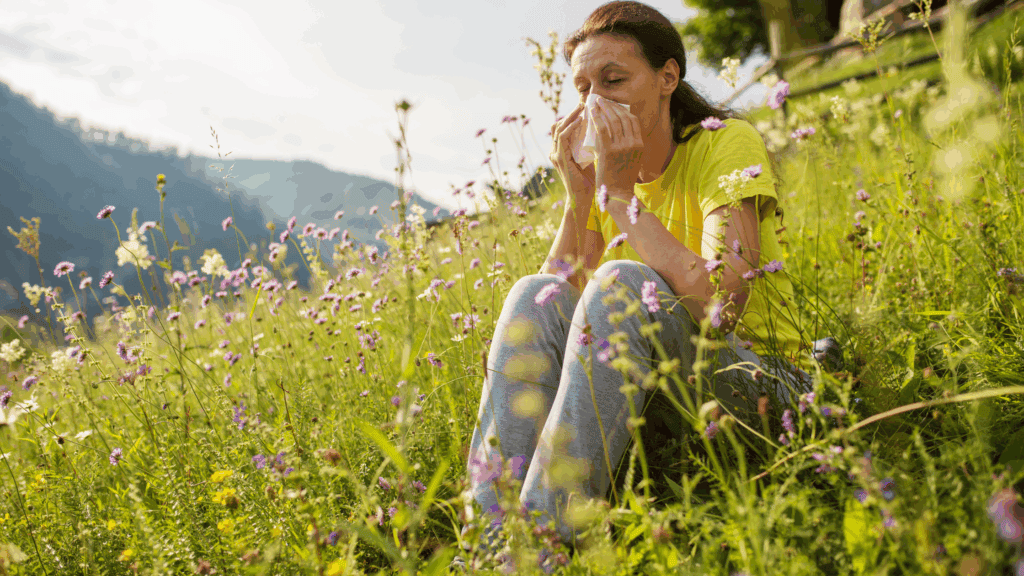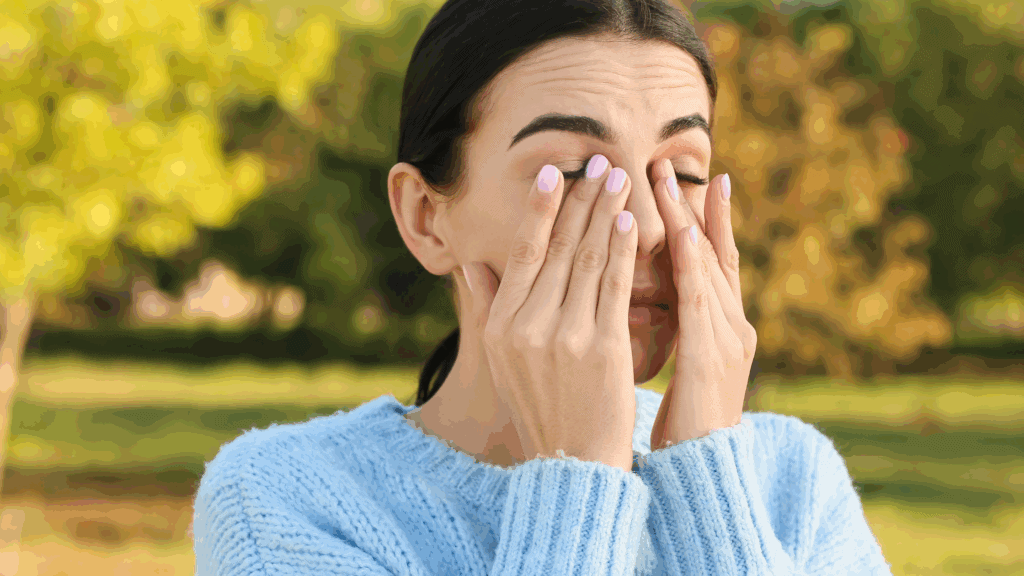It starts with a sniffle. Then a sneeze. Maybe your eyes start watering, or your throat feels scratchy. If this happens every spring—or fall, or even summer—you’re not alone. Seasonal allergies affect millions of people every year, turning beautiful weather into a battle against nature. But while these allergies are common, they’re often misunderstood, mismanaged, or brushed off as something you just have to “deal with.”
At EG Healthcare, we believe that you shouldn’t have to suffer through every allergy season. I built this practice to offer more than surface-level care. Our team of dedicated nurse practitioners takes the time to really understand what’s driving your symptoms. We go beyond quick fixes to help you take control of your health with a personalized plan that actually works for your life. In this post, I want to walk you through what’s really going on with seasonal allergies, why they hit harder during certain times of the year, and how our team can help you breathe easier—literally and figuratively.

What Are Seasonal Allergies?
Seasonal allergies, also known as allergic rhinitis or “hay fever,” are your immune system’s overreaction to environmental allergens that appear at specific times of the year. When you inhale pollen, mold spores, or other airborne particles, your body mistakenly identifies them as threats and releases histamines—chemicals that cause inflammation and typical allergy symptoms like sneezing, congestion, and itchy eyes.
The “seasonal” part comes from the fact that different allergens peak during different times of the year:
- Spring: Tree pollen (like oak, maple, and birch) is the main culprit.
- Summer: Grass pollen and mold spores tend to be highest.
- Fall: Ragweed is the big offender, along with mold from decaying leaves.
- Winter: Though not technically “seasonal,” indoor allergens like dust mites and pet dander become more problematic when we spend more time inside.
Symptoms to Watch For
Seasonal allergies can manifest in a variety of ways, and they’re often confused with a cold or sinus infection. Common symptoms include:
- Sneezing
- Runny or stuffy nose
- Postnasal drip
- Itchy eyes, nose, or throat
- Watery eyes
- Fatigue or brain fog
- Cough (especially from postnasal drip)
- Sinus pressure or headaches
Some patients may also experience worsening of asthma symptoms during allergy season, including wheezing, shortness of breath, or tightness in the chest.
Our nurse practitioners often hear patients say they didn’t realize how much their fatigue, irritability, or poor sleep were tied to seasonal allergies—especially when symptoms last for weeks at a time. Recognizing the signs is the first step in taking back control.
Why Are Seasonal Allergies Getting Worse?
It’s not just your imagination—seasonal allergies really are becoming more intense and longer-lasting. Here are a few reasons why:
1. Climate Change
Warmer temperatures and longer growing seasons mean that plants produce more pollen over more days. Ragweed season, for instance, now lasts several weeks longer in many parts of the U.S. than it did a few decades ago.
2. Air Pollution
Pollutants like ozone and particulate matter can make allergy symptoms worse and may even increase your body’s sensitivity to allergens.
3. Urban Living
In cities, there’s more exposure to pollution, less natural biodiversity (which can help train the immune system), and higher mold counts from buildings and HVAC systems.
Our team of nurse practitioners often work with patients whose symptoms have worsened year after year—even when they’ve lived in the same place their whole life. It’s not just about the pollen count anymore. Environmental stressors are playing a bigger role.

Managing Seasonal Allergies: What Actually Works
The good news? You don’t have to suffer through seasonal allergies. With the right strategies—both medical and lifestyle-based—you can dramatically reduce your symptoms and improve your quality of life.
1. Know Your Triggers
Consider getting tested for environmental allergens. Knowing whether you’re allergic to tree pollen, grasses, ragweed, or mold can help you anticipate flare-ups and prepare in advance. A simple skin or blood test can help identify the culprits.
2. Track the Pollen Count
During allergy season, check your local pollen forecast each morning. On high-pollen days:
- Limit outdoor time (especially mid-morning to afternoon when pollen counts are highest)
- Keep windows closed in your home and car
- Shower and change clothes after spending time outside
3. Medications
There are several effective medications available—many over-the-counter. The key is to start them early.
- Antihistamines (like loratadine or cetirizine) block the effects of histamine and relieve sneezing, itching, and runny nose.
- Nasal corticosteroids (like fluticasone or mometasone) reduce inflammation and are often the most effective option.
- Decongestants can help temporarily relieve nasal congestion, but they shouldn’t be used long-term.
- Eye drops can ease itchy, watery eyes.
If symptoms are severe, a nurse practitioner or allergist may prescribe stronger treatments or consider immunotherapy (allergy shots or sublingual tablets).
4. Lifestyle Support
Don’t underestimate the impact of small daily habits:
- Use a HEPA filter in your bedroom
- Wash bedding weekly in hot water
- Avoid hanging laundry outdoors during high-pollen seasons
- Stay hydrated to thin mucus
- Avoid smoking or exposure to smoke, which worsens symptoms
At EG Healthcare, our nurse practitioners take a whole-person approach to primary care. That means we don’t just treat your seasonal allergies—we look at how they’re affecting your day-to-day life, your sleep, your energy, and your ability to thrive. From adjusting medications to exploring lifestyle triggers like sleep and stress, we help you build a practical, personalized plan that actually works.
Natural Remedies: Do They Help?
Many patients ask about natural options for managing seasonal allergies. While these remedies aren’t for everyone, some may provide added relief:
- Local honey: Contains small amounts of pollen and may help some people build tolerance.
- Quercetin: A natural antioxidant found in apples, onions, and capers that may help stabilize histamines.
- Butterbur and stinging nettle: Herbal supplements with some research behind their anti-inflammatory effects.
- Neti pot or saline nasal spray: Helps rinse allergens out of the nasal passages.
Before starting any supplement, it’s important to check with a healthcare provider—especially if you’re taking other medications. A nurse practitioner at EG Healthcare can help you weigh the risks and benefits.

When to Seek Help
If you’ve been toughing it out year after year with no relief, it’s time to change your game plan. Seasonal allergies are manageable with the right support, and suffering in silence isn’t necessary.
Consider scheduling a visit if:
- Symptoms are affecting your sleep, mood, or daily functioning
- Over-the-counter meds aren’t working
- You’re not sure what you’re allergic to
- You’re experiencing asthma symptoms or difficulty breathing
You don’t need to have all the answers before you come in. That’s what we’re here for. Our team always starts by listening—then we build a plan that fits your lifestyle and health goals.
The EG Healthcare Approach
At EG Healthcare, we take a personalized approach to managing seasonal allergies. Whether you’re looking for fast symptom relief, want to explore long-term solutions, or are curious about natural options, we can help. We understand that no two patients are alike—and neither are their allergies.
As a team of dedicated professionals, including experienced nurse practitioners, we offer both traditional and integrative care to get you through allergy season with less misery and more peace of mind.
We’re not here to just hand you a prescription—we’re here to understand what’s driving your symptoms and help you feel like yourself again.
You Don’t Have to Suffer Through Allergy Season
Seasonal allergies can be frustrating, persistent, and even overwhelming—but they don’t have to control your life. By understanding what triggers your symptoms and using both preventive and therapeutic strategies, you can reclaim your energy, your focus, and your joy in the changing seasons.
If you’re tired of relying on tissues and allergy meds that barely scratch the surface, it’s time to do something different.
Schedule a visit with us at EG Healthcare today—and let’s make this your easiest allergy season yet.
